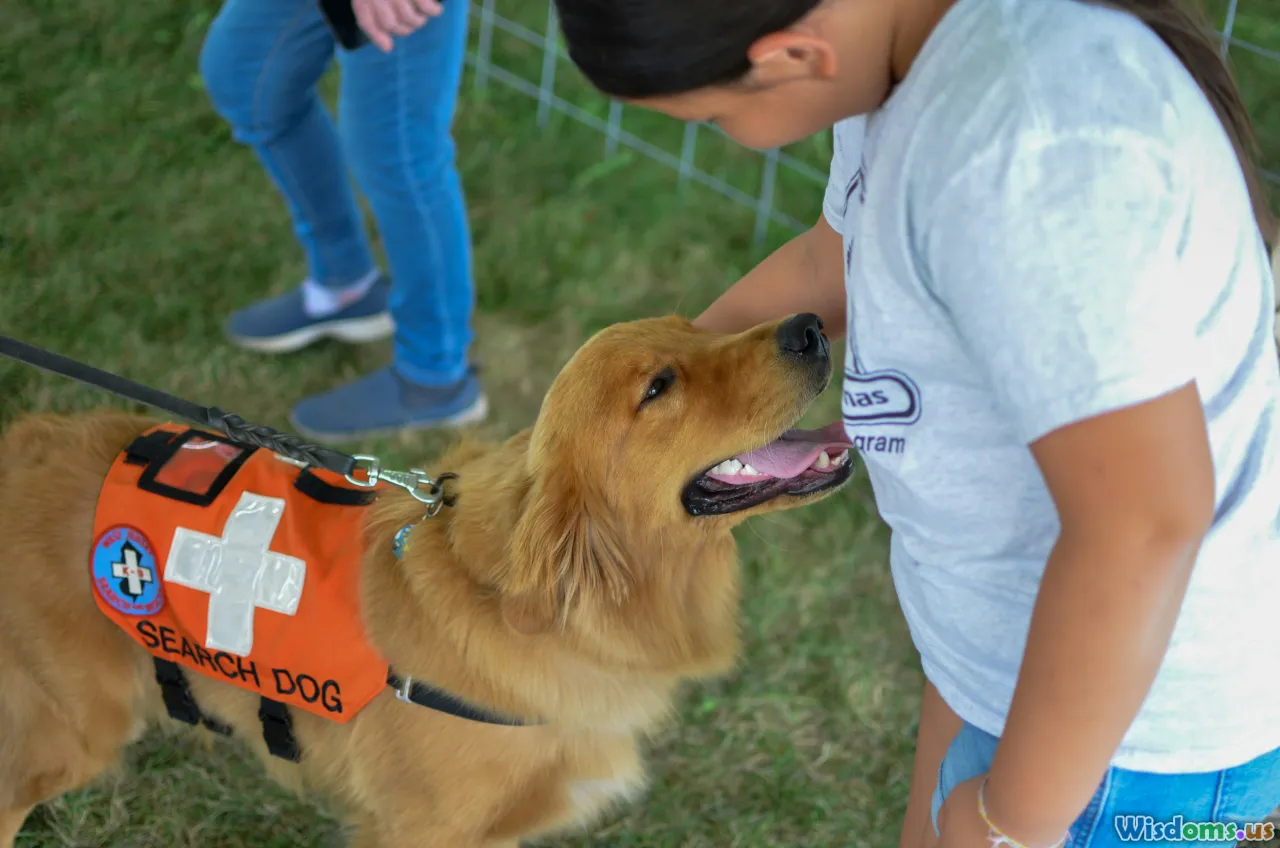
Five Healthy Coping Strategies for Pet Bereavement
11 min read Discover five compassionate coping strategies to help you heal after the loss of a beloved pet. (0 Reviews)
Five Healthy Coping Strategies for Pet Bereavement
The bond we form with our pets is like no other—a mixture of loyalty, love, and wordless understanding. When this bond is broken by loss, pet owners often experience profound grief, sometimes feeling as if a family member has passed away. Pet bereavement remains underappreciated by society at large, yet statistics suggest that approximately 85% of pet owners consider their animals to be integral family members. Navigating this loss is a uniquely personal journey, but with mindful coping strategies, it's possible to honor your pet's memory and support your emotional recovery. Below, we explore five healthy and effective ways to find solace after losing your beloved animal companion.
Explore and Express Your Grief

Grieving a pet manifests in various ways: sadness, guilt, even anger or disbelief. Suppressing these emotions can prolong pain and result in complicated grief. Give yourself permission to mourn—acknowledging your loss isn't a weakness but a necessary part of the healing process.
Tangible ways to express grief:
- Journaling: Take a few minutes daily to write letters to your lost pet or recount favorite memories. Writing has been shown to help process and clarify emotions.
- Art and Photography: Creating a drawing or album dedicated to your pet allows visual remembrance and offers comfort through artistry.
- Conversations: Talk to trusted friends or family members about your feelings. If you're more comfortable online, forums such as Pet Loss Support (pet-loss.net) or Reddit's r/petloss community can offer empathetic support from people who understand.
- Pet Bereavement Groups: Many communities have pet loss support networks led by trained facilitators. Engaging with these groups, either virtually or in-person, allows you to share your story and benefit from collective understanding.
Example: Jane, who lost her senior cat of 17 years, found solace in attending a weekly online pet loss circle. She reported feeling less "isolated in her grief" just by hearing others' similar stories.
Memorialize Your Companion in Personal Ways

Creating a memorial doesn't trivialize the loss—it helps replace feelings of emptiness with enduring warmth. There are countless tender, creative ways to honor a pet's memory:
- Memory Box: Gather photos, favorite toys, a collar, or even a paw print into a decorative box. Each item is a tangible reminder of the joy your pet brought you.
- Living Tribute: Plant a tree or a small memorial garden in your pet's honor. A blooming flower or leafy shade tree becomes a living legacy.
- Digital Tribute: Many websites (such as Rainbow Bridge or Facebook memorial pages) allow you to share photos, videos, and stories, inviting friends and family to join in your remembrance.
- Commission a Portrait: Artists on Etsy and other platforms create custom pet portraits using photos. Hanging it in a special spot ensures their presence remains part of your everyday life.
Fact: Studies in grief therapy suggest that ritual and remembrance activities, such as lighting a candle or organizing an annual day of remembrance, are associated with healthier long-term emotional adjustment. It's not about "moving on," but learning to move forward with loving remembrance.
Maintain Self-Care and Daily Routines

The days and weeks after your loss can blur together as sadness sets in and everyday tasks feel overwhelming. Yet, self-care is not a luxury, but an essential part of recovery.
Tips for sustaining your wellbeing:
- Set Simple Goals: On hard days, getting out of bed, showering, or eating well can be achievements. Write down small, achievable daily goals and celebrate them.
- Move Your Body: Engage in gentle exercise, such as taking a walk in your pet's favorite park or doing light stretching at home. Physical movement releases endorphins that support emotional healing.
- Mindfulness and Meditation: Guided meditation apps (like Calm or Headspace) can help anchor you in the present, even for a few minutes at a time. Consider audio tracks designed for pet loss to support focused grieving.
- Nutrition and Hydration: Grief can sap your appetite and motivation to cook, but eating nutritious meals and drinking water helps your body cope with emotional stress.
Real-life insight: Mike, who mourned his golden retriever Max, created a routine of walking the same route he once enjoyed with his dog. "At first, I cried more than I walked. But week by week, it felt like a way of honoring him and reconnecting with happy memories," he shared.
Explore Professional Help When Needed

Sometimes, grief can feel insurmountable. Indicators that you might benefit from professional support include prolonged numbness, thoughts of hopelessness, difficulty functioning, or a lack of interest in all activities. Reaching out for help is an act of self-respect—not failure.
Types of support:
- Therapists specializing in pet loss: There are licensed counselors focusing exclusively on animal companionship grief. They understand not only general bereavement but the unique dimensions of human-animal bonds.
- Online Counseling Services: If in-person sessions are not available, services such as BetterHelp or Talkspace let you match with a therapist specializing in pet bereavement via video, phone, or chat.
- Books and Resources: Reading can offer perspective and validation. Renowned works such as "Goodbye, Friend" by Gary Kowalski or "Losing My Best Friend" by Jeannie Wycherley address everything from childhood to adult pet loss and provide exercises for healing.
Case Study: A 2021 survey by the American Veterinary Medical Association found that individuals who received structured grief counseling after losing a pet reported significantly improved emotional adjustment within six months, compared to those who received no guidance.
Channel Your Love into Positive Action

As time passes, redirecting your grief into a force for good can be transformative. This doesn't mean replacing your pet or pushing away memories. Instead, it's about honoring your pet's effect on your life by supporting other animals or pet owners.
Actionable Ideas:
- Volunteer at Shelters: Giving time at your local animal shelter connects you with new furry friends and brings solace by helping animals in need.
- Foster an Animal: When you're ready, opening your home to a pet in transition (without long-term commitment) can be rewarding and restorative.
- Fundraise or Donate: Many pet owners establish charity fundraisers or donate supplies (bedding, food, money) to local rescue organizations in their pet's name.
- Peer Mentorship: Offer to speak in online groups or local support meetings, providing a wise and compassionate ear to others embarking on the same journey.
Example: After losing her rabbit Luna, Tina helped organize an annual walk for the local humane society. "Turning grief into action made me feel like Luna's story was continuing to make a difference," she said.
Research in positive psychology supports altruism as an effective balm for emotional pain. Giving back, in whatever manner you choose, creates new meaning and helps weave your pet's legacy into a broader tapestry.
No journey through grief is identical or bound by a strict timetable. While your relationship with your lost companion was unique, you're not alone in the heavy weight of pet bereavement. By embracing compassionate coping strategies—expressing your feelings, cherishing memories, nurturing your own wellbeing, seeking support, and paying compassion forward—you gradually forge a new way to celebrate the love that endures. Your pet's paw prints may never fade from your memory, but with time and self-care, your heart may feel lighter, filled with gratitude for every wag, purr, or nuzzle you were privileged to share.
Rate the Post
User Reviews
Popular Posts

















